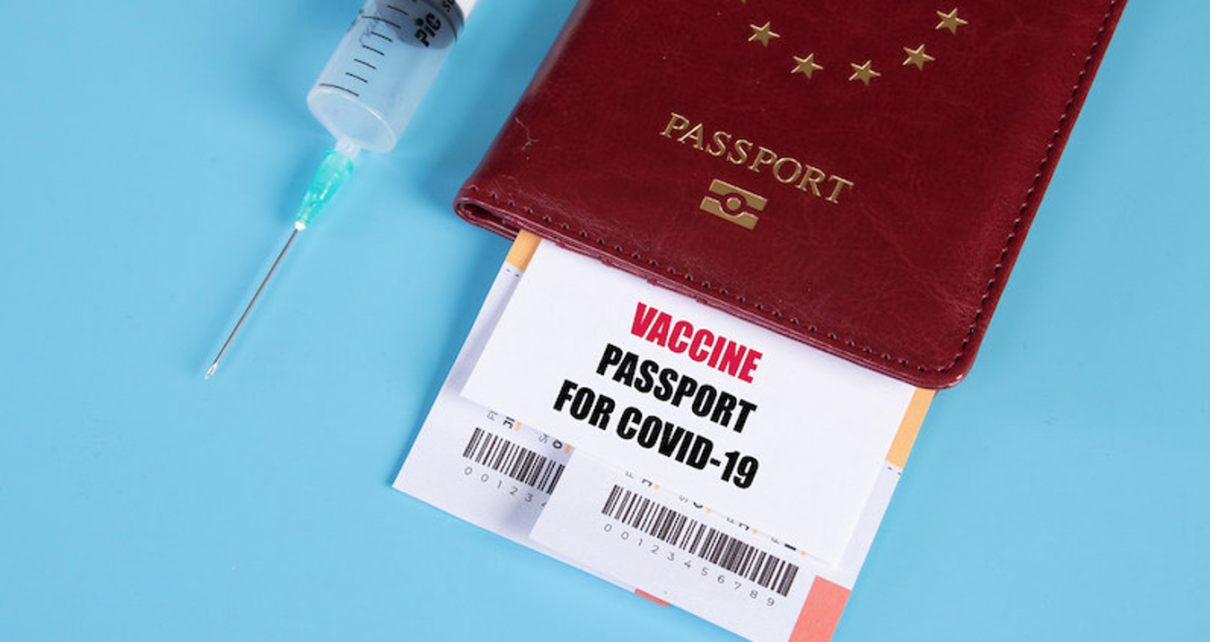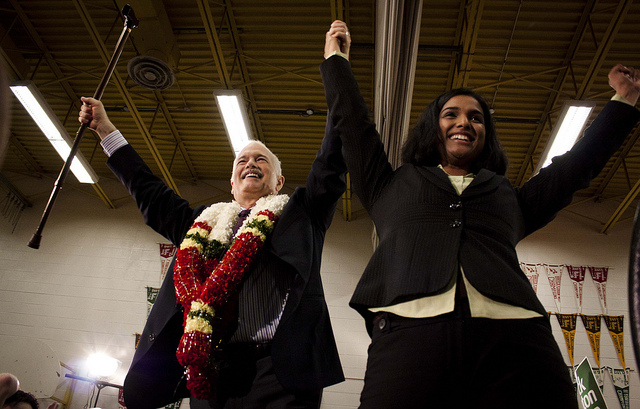This is a special report written by Darryl Rigby, Content Executive at the Immigration Advice Service.
COVID-19 has posed one of the biggest global threats to human life in the past hundred years, but after scientists and medical experts worked tirelessly to engineer a series of vaccines in record time, thankfully there is now some light at the end of the tunnel and the conclusion to this nightmare is hopefully in sight.
With vaccinations now administered to many of the most vulnerable demographic cohorts, including those in the most senior age brackets and people suffering from respiratory illnesses, the next stage is to offer inoculation to people who are at less risk, and experts and government advisors are optimistically predicting that more or less everyone residing in Western nations should have been offered a shot by the end of this year at the very latest.
As such, many governments and private companies are now pushing the idea of vaccine passports – government-issued documentation which proponents argue will simplify the process of showing proof of vaccination or test results. Vaccine passports would help airlines and businesses in the hospitality sector establish whether their customers have been vaccinated or they have received a negative PCR test, allowing them to refuse entry to anyone deemed to pose a risk, in an effort to limit potential transmission.
Will access be equal for all?
Although the idea of vaccine passports is gathering momentum, there are some detractors who argue that as well as being unfair towards those still waiting for their injection, by excluding anyone who has not been inoculated, essentially the government is mandating vaccinations.
There are a number of reasons why this should be a cause for concern, not least because dividing the population up into two camps – the vaccinated and the non-vaccinated – will inevitably lead to discrimination in some way or another. Delve a little deeper, and one can start to see that the proposal will disproportionately affect the vulnerable and/or disadvantaged, who will be hit the hardest if the current plans for vaccine passports get the green light.
That is because privileges for those inoculated against the virus would naturally favour the demographics that are vaccinated at higher rates. When analysing Western countries, those strata tend to be white and affluent.
According to research conducted by the Royal College of GPs, white people are twice as likely to have been vaccinated compared to people from black backgrounds, and three times as likely compared to those who have mixed ethnicity. If society suddenly excludes those who are yet to receive their vaccination, it is pretty clear that people from ethnic minority or working-class backgrounds will be over-represented among the affected.
One can imagine for a moment what that would look like – a society that disproportionately allows more white or wealthy people to dine in restaurants, attend sports events, and drink in bars, while people of colour or those from poorer backgrounds are disproportionately denied entry.
BAME groups refusing vaccine at disproportionate rate
The low uptake among Black, Asian and Minority (BAME) groups, fuelled partly by false conspiracy theories which are currently causing a great deal of suspicion in these communities, is not helping matters at all. In the UK, the government’s vaccines minister, Nadhim Zahawi, said that although acceptance of the vaccine is very high, the 15% of adults opposed to getting the shot “skew heavily towards ethnic minority groups, especially Afro-Caribbean, black communities and of course other Asian and BAME communities.”
A number of falsehoods pushed by anti-vaxxers that are making the rounds online, such as the claim the vaccine contains pork and is therefore not halal, are fostering suspicion and contributing to much of the wariness that’s seeing many members of these communities refuse the injection. However, there are other reasons for the low uptake among BAME groups, and some of these misgivings stem from their distrust, not just in the vaccine itself, but also in the healthcare systems overseeing its administration.
These were the findings of a report by the Scientific Advisory Group on Emergencies (SAGE), which found that there was “lower trust and confidence in vaccine efficacy and safety,” which is linked to “structural and institutional racism and discrimination.”
The report said members of BAME communities feel that ethnic minorities have historically been underrepresented within health research, including vaccine trials, and this has led to a great deal of apprehension due to the unfair treatment dating back generations.
If health professionals are to rectify some of the damage that has been done and encourage members of these communities to get vaccinated – which is essential if the population is to reach herd immunity – then it is clear that the focus needs to be on building bridges and re-establishing a higher degree of trust, as well as debunking these dangerous conspiracy theories that are causing so much scepticism within BAME communities.
Potential issues if passports are digital-only
As well as the potential problems caused by some demographics being vaccinated at a lower rate, there are also concerns about how exactly the vaccine passports will work and whether everyone will have access. How they will be implemented is currently being debated, but the suggestion that seems to be the most likely outcome is a digital solution where medical records are kept in an app, which can then be produced upon request.
But while that might sound like a good idea in theory, in practice a certificate accessible by digital means only could inadvertently discriminate against many of the most vulnerable in society. If suddenly people are required to own a smartphone, tablet or computer to prove they have been vaccinated, does that mean those who do not have access to such technology will suddenly be unable to gain access to some venues or services?
This seems terribly unfair, and it raises all sorts of questions about whether those affected by poverty may be excluded, at a time when many people are already struggling financially due to the ongoing economic impact of COVID.
Potential issues for asylum seekers and refugees
Similarly, asylum-seekers and refugees, who are undoubtedly some of the most vulnerable people in society, will also be at increased risk of discrimination. That is because, in addition to the that fact many of these people do not own mobile phones (up to 29% of households according to research by GSMA), it can be notoriously difficult for those who have fled their homeland without paperwork to access official documentation when they arrive in a new country. This will undoubtedly cause lengthy delays and mean many asylum-seekers and refugees are waiting for long periods of time to receive vaccine passports, while some many never receive theirs at all, potentially barring them from accessing a range of services and venues in future.
A large proportion of refugees and asylum seekers come from BAME communities. Enforcement of vaccine passports in this area carries a danger of discrimination. During lockdowns, joint analysis carried out by the Guardian and Liberty Investigates found that BAME people were 54% more likely to be stopped and issued fixed penalty notice, prompting experts and campaigners to question whether the fines were being issued fairly.
So, after a disproportionate number of people from minorities were fined during the first two lockdowns in the UK, it is easy to see who is most likely to be stopped and asked for their vaccine passport once they are rolled out, representing yet another example of the discrimination this new system is likely to create for members of BME communities, of which many asylum seekers and refugees are a part.
The vulnerabilities of asylum seekers and refugees have already been exacerbated by the COVID-19 crisis, and as such these people are more likely to suffer from the physical, mental and socioeconomic effects of the pandemic. Throwing discrimination into the mix via the administration of vaccine passports could potentially cause even more harm for a demographic that needs support more than ever.
Further suspicion among those already reluctant
As well as creating the potential for discrimination, the plan also runs the risk of further alienating those who are already sceptical about the vaccine. Worries about the speedy nature of the vaccine’s development, combined with the endless stream of anti-vax commentary that is currently rife on social media, have resulted in a great deal of apprehension among members of the public, and with the introduction of vaccine passports there is a strong chance this suspicion could become even more intense if the shots are seen as government-mandated.
In order to achieve herd immunity, it is estimated around 80% of the population will need to be vaccinated. Even before the suggestion of vaccine passports, this target would have been difficult to achieve. If more people are now deterred from getting their shot due to perceived government pressure, it will be even more out of reach.
With the current proposal for vaccine passports gaining more traction, it looks increasingly likely that in the not-too-distant future, governments will require their citizens to provide proof of either a vaccination against COVID-19 or a negative PCR test – or maybe even both – simply to access many of the venues and services they were previously accustomed to.
While there is no doubt something needs to be put in place in order to keep populations safe in a post-pandemic world and allow businesses to limit the threat of transmission, compelling evidence suggests that if vaccine passports – at least in their currently-discussed form – are pushed through, many demographics will be at a severe disadvantage and are at risk of being discriminated against. If these current plans are not given a major re-think, they could be the source of major social contention.
Photo: Syringe, Passport, Vaccine for COVID-19. 02/12/2021. Picture by Jernej Furman, via flickr. Licensed under CC BY 2.0.
Disclaimer: Any views or opinions expressed in articles are solely those of the authors and do not necessarily represent the views of the NATO Association of Canada.




